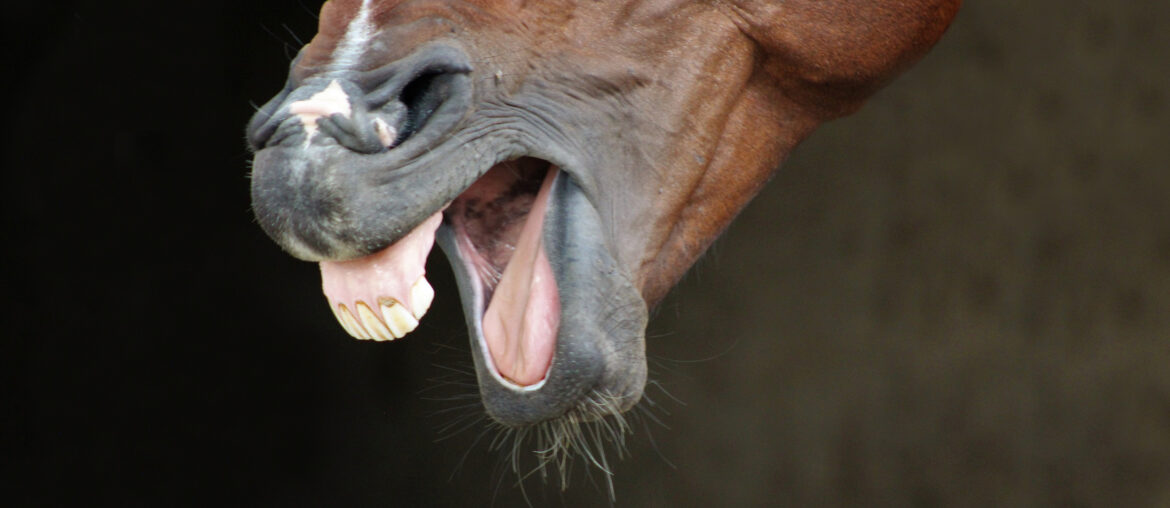Is your horse suffering in silence?
Being prey animals, horses can hide pain for long periods of time without showing any symptoms, and so dental problems can be easily missed. Usually by the time your horse shows signs of discomfort, the issue has begun some time before. Dental pain can also cause secondary complications with the digestive system, as well as a drop in performance and condition. For this reason, it is recommended that you have your horse checked every 6-12 months – remember, prevention is better than cure!
Horses’ teeth grow at a rate of around 2-3mm per year, and are worn down at a similar rate by continuous chewing of coarse fibre. They chew in a circular motion, creating uneven wear that leaves sharp edges on the outside of the top teeth and the inside of the bottom teeth. These edges can cause ulceration on the cheeks which can result in major discomfort.
Horses have the following:-
- Incisors – 12 teeth at the front of the mouth that grasp and tear food
- Premolars – 12 ‘cheek teeth’ that are designed for chewing and grinding
- Molars – 12 cheek teeth that sit further back where food is mixed with saliva to create a bolus ready to swallow
- Canines – Sit behind the incisors primarily in male horses and originated for fighting
- Wolf teeth – Very small in size and located in front of the first premolars on the upper jaw
Wolf teeth are often removed because they can be very painful when left as they sit at the bars of the mouth and can cause interference with the bit. They also have nerve endings that can make them very sensitive. However, it is best to remove wolf teeth when the horse is young because as they get older, the roots weld themselves to the jaw bone making them more difficult to extract.
Horses with dental issues can struggle to chew which can stop them from receiving the essential nutrients and energy that they need. But there are ways that you can ensure you meet their dietary requirements, including their fibre. Short chopped fibre feeds are a good alternative, or pelleted fibres that can be soaked are ideal for those that really struggle. Feeding a digestive supplement will also help keep the gut healthy for maximum absorption of nutrients.

